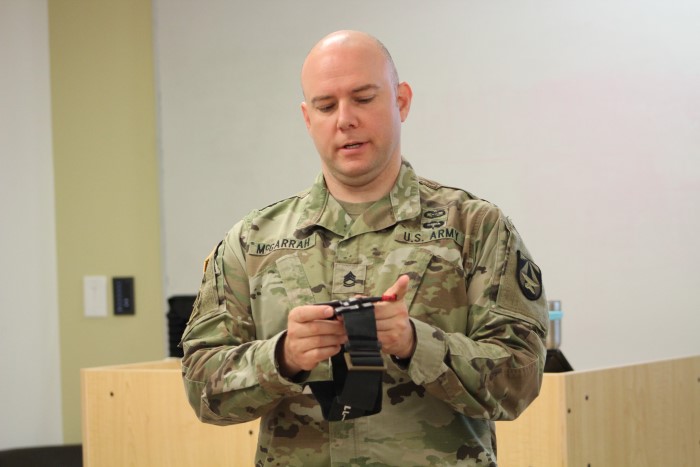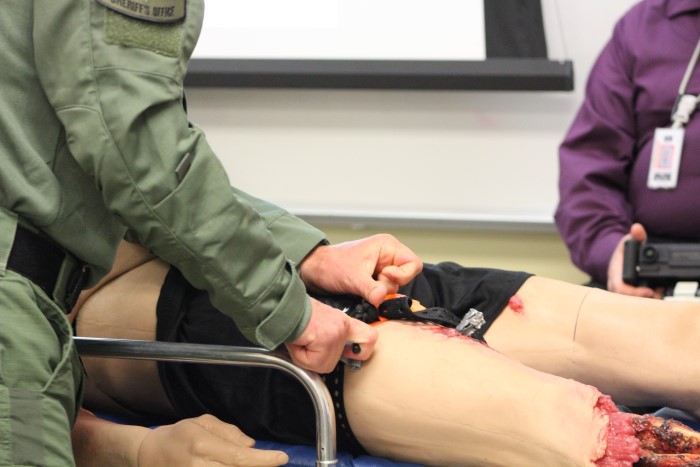USAMRDC, Law Enforcement Team for Trauma Care Training

Medical instruction staff with the U.S. Army Medical Research and Development Command held a safety training exercise with members of the Frederick County Sheriff's Office at Fort Detrick on May 24. The event, which focused chiefly on the tactical treatment of gunshot wounds, was designed to provide attendees the knowledge required to provide immediate, point-of-care treatment in cases of penetrating wounds and, additionally, possibly resulting incidents of severe hemorrhage.
"The country sheriff reached out to see if we provided training for these types of situations," said Joe Ogershok, a former Army Special Forces medic and the current senior trainer at USAMRDC and Fort Detrick, noting Command leadership was eager to help supplement the training of local law enforcement. "My goal was to take basic combat casualty care techniques and turn the program into a four hour class for law enforcement."
The course itself – specifically titled "Tactical Field Treatment of Gunshot Wounds" – was led by Sgt. 1st Class Dan McGarrah, a medic by trade who combined anecdotes from his personal military experience (including two tours of duty and nearly one thousand patients treated for trauma) with basic tenets of casualty care. Among the variety of topics covered included the importance of stopping bleeding as fast as possible, the practical use and application of tourniquets, and even concepts related to the immediate care of blunt trauma and blast injuries. The half-dozen representatives from the sheriff's office further practiced a number of trauma care techniques on manikins specifically used for such training.

Among the key takeaways from the exercise, McGarrah routinely asserted the importance of timeliness in addressing incidents of hemorrhage, noting that on the battlefield, 90% of all deaths occur before a casualty reaches a medical treatment facility – while upwards of 60% of all preventable deaths across the country are the result of from extremity hemorrhage.
"If you can apply pressure, you can help a great deal [because] you want to keep that good, warm blood circulating in the body," said McGarrah. "I'm big on buddy aid, but self-aid is important too – you need to learn how to treat yourself."
"The faster you can get a tourniquet on, the faster you're going to stop the bleed," said FCSO Cpl. Jeremy Kretinsger, noting during an open discussion period that deputies carry both tourniquets and chest seals during calls as a matter of protocol.
The training event took place only a few days after the annual Peace Officers Memorial Day on May 15, and further serves as an example of the enduring cooperation between both USAMRDC and Fort Detrick, and the Frederick County Sheriff's Office.
 An official website of the United States government
An official website of the United States government
 ) or https:// means you've safely connected to the .mil website. Share sensitive information only on official, secure websites.
) or https:// means you've safely connected to the .mil website. Share sensitive information only on official, secure websites.


